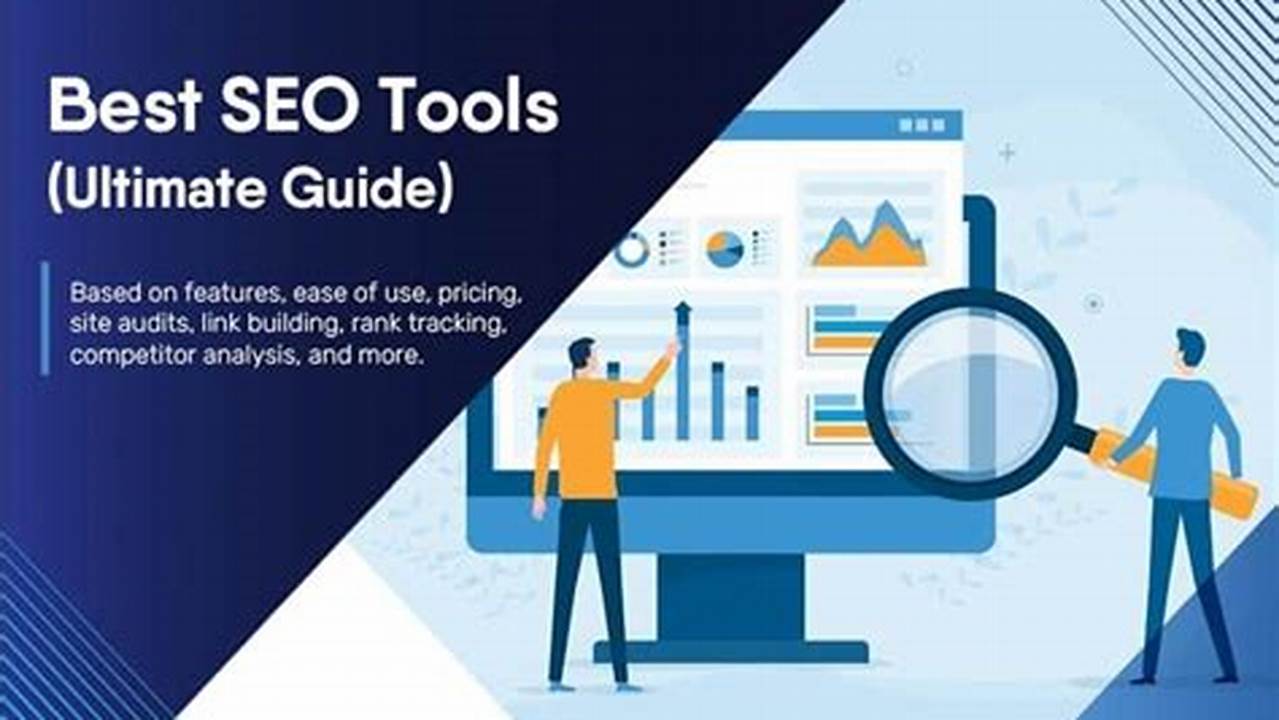Staying competitive in the digital landscape requires a keen understanding of search engine optimization (SEO). Selecting the right analysis tools is crucial for success. This exploration delves into the significance of evaluating leading SEO software solutions for 2024, highlighting key features and considerations for making informed decisions.
Keyword Research Capabilities
Effective keyword research identifies terms users employ when searching online. Robust tools provide insights into search volume, competition, and keyword variations, enabling targeted content creation.
Backlink Analysis
Understanding the link profile of a website is essential. Quality backlink analysis tools identify referring domains, assess link quality, and uncover potential link-building opportunities.
Technical SEO Auditing
Technical SEO issues can hinder search engine visibility. Comprehensive auditing tools identify crawl errors, broken links, site speed bottlenecks, and other technical impediments.
Rank Tracking
Monitoring keyword rankings provides valuable performance data. Tracking tools offer insights into ranking fluctuations, competitor performance, and the impact of SEO efforts.
Content Optimization Features
Creating high-quality, optimized content is paramount. Effective SEO tools offer content analysis, readability assessments, and suggestions for improvement.
Competitor Analysis
Understanding competitor strategies is crucial for gaining an edge. Competitor analysis tools reveal keyword rankings, backlink profiles, and content strategies of competing websites.
Reporting and Analytics
Clear, concise reporting is essential for measuring SEO success. Robust reporting features provide data visualizations, performance summaries, and actionable insights.
Integration and Compatibility
Seamless integration with other marketing tools and platforms streamlines workflows. Compatibility with various content management systems and analytics platforms is essential.
Tips for Selecting SEO Analysis Software
Trial periods: Utilize free trials or demo versions to evaluate software functionality and user experience.
Budget considerations: Explore pricing plans and choose a solution that aligns with budgetary constraints.
Specific needs: Select tools that address specific SEO requirements, whether keyword research, technical audits, or competitor analysis.
User reviews and ratings: Consult online reviews and ratings to gain insights from other users’ experiences.
Frequently Asked Questions
How often should I analyze my website’s SEO?
Regular analysis, at least monthly, is recommended to identify and address emerging issues promptly.
What is the difference between free and paid SEO tools?
Paid tools typically offer more advanced features, comprehensive data, and dedicated support compared to free alternatives.
Are SEO analysis tools suitable for small businesses?
Yes, many SEO tools offer scalable plans suitable for businesses of all sizes, from startups to large enterprises.
Can SEO analysis tools guarantee top rankings?
No tool can guarantee top rankings. SEO is a complex process influenced by various factors. Tools provide data and insights to inform strategy, but rankings depend on numerous variables.
How important is technical SEO?
Technical SEO is foundational. It ensures search engines can crawl and index website content effectively, a prerequisite for ranking well.
What is the role of content in SEO?
High-quality, relevant content is crucial for attracting and engaging users, as well as signaling relevance to search engines.
Strategic selection of SEO analysis software is an investment in online visibility and success. By carefully evaluating available tools and considering individual needs, businesses can leverage data-driven insights to optimize their online presence and achieve their digital marketing goals.

Leave a Reply